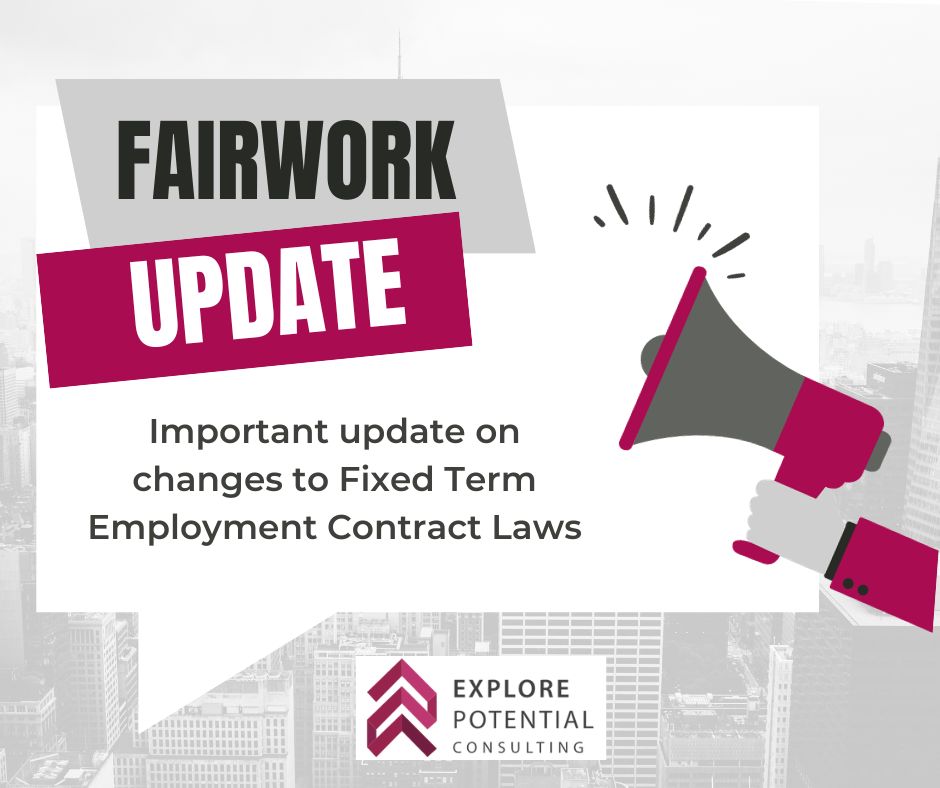Important Update on Changes to Fixed Term Employment Contract Laws

1. Duration Limits:
Fixed term contracts are now limited to 2 years (with exceptions) or one extension if less than 2 years.
2. Purposeful Use:
The changes aim to eliminate the practice of rolling over contracts, emphasising genuine fixed-term arrangements or permanent employment.
3. Applicability:
These changes only affect full-time and part-time contracts, not casual.
What’s Changing?
A fixed-term contract will be restricted if:
- The contract exceeds two years.
- It can be renewed for more than two years or extended more than once.
- “Consecutive contracts” criteria are met.
Exceptions include contracts for specific tasks requiring specialised skills, training agreements, high-income earners, peak demand periods, emergencies, government funding roles, governance positions, and those allowed by a relevant modern award.
Fixed Term Contract Information Statement:
A new statement, similar to the Fair Work Information Statement, will be released on December 6, 2023. Employers must provide this statement to employees entering fixed-term contracts.
Consequences for Non-Compliance:
Invalid ‘expiry mechanisms’ will render the contract ongoing, subjecting it to standard termination rules and potential remedies for unfair dismissals.
Actions to Take:
Before December 6, 2023: Review engagement practices, recruitment for specific roles, and
procedures for contract expiration. Identify applicable exceptions.
After December 6, 2023: Ensure employees receive the Fixed Term Contract Information Statement, and document reasons for engaging in fixed-term contracts.
How Explore Potential Can Help:
Our HR Specialists can assist with understanding the implications, auditing existing contracts,
and providing workforce planning and recruitment advice.
If you have any questions or concerns or need support implementing these changes, feel free to
contact our Team on 0473 441 675 or info@explorepotential.support.
